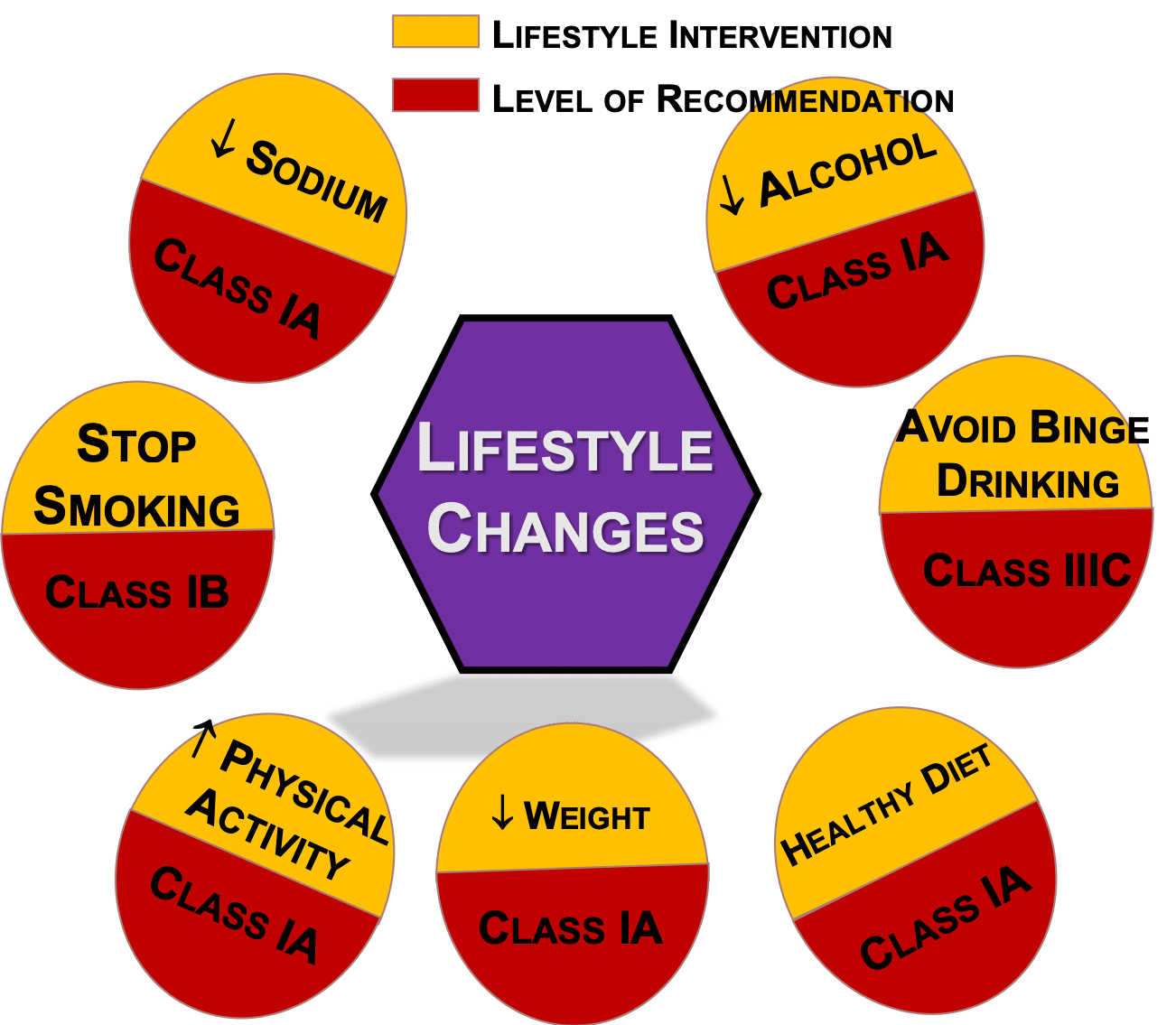
High blood pressure, also known as hypertension, is a major risk factor for heart disease, stroke, and other serious health conditions. While medications can help manage hypertension, making simple lifestyle changes can play a crucial role in controlling blood pressure naturally. In this blog, we’ll explore 10 practical lifestyle changes that can help lower your blood pressure and improve your overall health.
1. Adopt a Heart-Healthy Diet
One of the most effective ways to control high blood pressure is by adopting a balanced, heart-healthy diet. The DASH (Dietary Approaches to Stop Hypertension) diet is specifically designed to reduce blood pressure. It emphasizes the following:
- Fruits and vegetables: Aim for a variety of colorful produce.
- Whole grains: Opt for brown rice, oats, and whole wheat.
- Lean proteins: Include fish, poultry, legumes, and nuts.
- Low-fat dairy: Choose fat-free or low-fat dairy products.
- Reduce sodium intake: Limit processed foods and added salt.
By focusing on nutrient-rich foods, you can significantly reduce your blood pressure and support overall heart health.
2. Increase Physical Activity
Regular physical activity is essential for maintaining healthy blood pressure levels. Aim for at least 30 minutes of moderate-intensity exercise most days of the week. This can include walking, cycling, swimming, or dancing. Exercise helps:
- Strengthen the heart muscle
- Improve blood circulation
- Lower stress levels
Even simple activities like walking or gardening can make a noticeable difference in your blood pressure over time.
3. Maintain a Healthy Weight
Being overweight or obese puts extra strain on the heart, which can elevate blood pressure. Losing even a small amount of weight can help lower your blood pressure. To achieve and maintain a healthy weight, focus on:
- Balanced portion sizes
- Regular physical activity
- Mindful eating to avoid overeating
For many people, losing 5-10% of body weight can make a significant improvement in blood pressure readings.
4. Limit Alcohol Consumption
Drinking alcohol in moderation is key to maintaining healthy blood pressure levels. Excessive alcohol intake can increase your blood pressure and add extra calories to your diet.
- Recommended limits: No more than one drink per day for women and two drinks per day for men.
- Choose lighter alternatives: Opt for wine, light beer, or spirits mixed with water or soda.
By limiting alcohol, you can help keep your blood pressure in check and reduce other health risks.
5. Quit Smoking
Smoking is one of the most harmful habits for heart health, as it temporarily raises blood pressure and damages blood vessels. Quitting smoking has immediate and long-term benefits for blood pressure control:
- Improved blood vessel function
- Lowered heart rate
- Reduced risk of heart disease and stroke
Seek support through smoking cessation programs, counseling, or medications to help you quit successfully.
6. Reduce Stress Levels
Chronic stress is a significant contributor to high blood pressure. While it’s impossible to avoid stress entirely, there are effective strategies to manage it:
- Deep breathing exercises: Take a few moments each day to focus on slow, deep breaths to calm your nervous system.
- Meditation and yoga: These practices help reduce tension and promote relaxation.
- Mindfulness: Staying present and focusing on the moment can help reduce stress levels.
By incorporating stress-reducing activities into your routine, you can help lower blood pressure and improve your mental well-being.
7. Get Enough Sleep
Quality sleep is vital for maintaining a healthy heart and managing blood pressure. Lack of sleep can elevate stress hormones and increase blood pressure. Aim for 7-9 hours of sleep per night, and practice good sleep hygiene:
- Create a consistent sleep schedule
- Limit screen time before bed
- Make your bedroom a calm, relaxing environment
By improving your sleep habits, you can help your body recover and lower your risk of high blood pressure.
8. Monitor Your Blood Pressure Regularly
Regularly monitoring your blood pressure allows you to track your progress and adjust your lifestyle accordingly. Home blood pressure monitors are affordable and easy to use. By keeping a log of your readings, you can:
- Spot early signs of elevated blood pressure
- Make informed decisions about your health
- Share the data with your healthcare provider
Your doctor can provide guidance on your target blood pressure range and how to reach it.
9. Reduce Caffeine Intake
Caffeine is a stimulant that can temporarily raise blood pressure. While its effects on long-term blood pressure are still being studied, it’s a good idea to limit caffeine intake if you have hypertension:
- Limit coffee, energy drinks, and sodas
- Opt for decaffeinated coffee or herbal teas
If you’re sensitive to caffeine, reducing your intake can help manage blood pressure more effectively.
10. Stay Hydrated
Drinking enough water throughout the day is crucial for overall health and can help regulate blood pressure. Dehydration can lead to higher blood pressure, as the body tries to conserve water by constricting blood vessels. Aim to:
- Drink 8-10 cups of water daily
- Avoid excessive consumption of sugary or caffeinated beverages
- Include water-rich foods like fruits and vegetables in your diet
Proper hydration can improve circulation and support healthy blood pressure levels.
Final Thoughts
Managing high blood pressure doesn’t always require medication. By making simple lifestyle changes, you can effectively control your blood pressure and improve your overall well-being. Whether it’s adopting a healthier diet, exercising regularly, reducing stress, or getting enough sleep, each step you take will bring you closer to a healthier heart and a better quality of life.
Remember to work closely with your healthcare provider to create a personalized plan that fits your needs. By combining lifestyle changes with regular blood pressure monitoring, you can take charge of your health and reduce your risk of complications related to high blood pressure.

